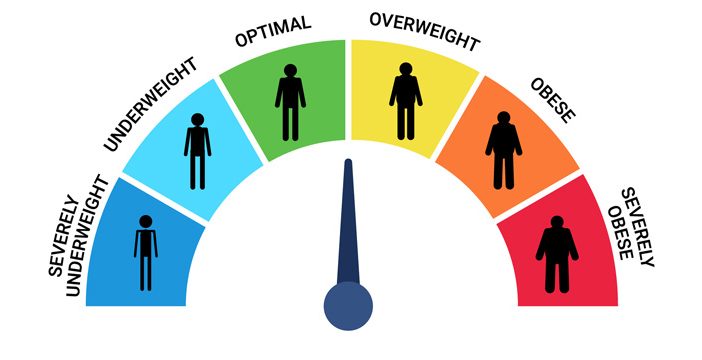
Welcome to Your BMI Calculator!
Discover more about your body with our simple BMI Calculator. Just enter your height and weight, and let our tool do the rest. Whether you’re tracking your fitness goals or just curious, our calculator provides a quick assessment of your body mass index (BMI). Remember, while BMI is a useful indicator of weight-related health status, it’s not a comprehensive measure of overall health. Always consult with a healthcare provider for a complete health assessment. Start your journey to better health awareness now!
 BMI Calculator
BMI Calculator
Understanding Your BMI Results
Once you’ve entered your height and weight into our BMI calculator, you’ll receive a number indicating your BMI. This number places you within one of four main categories, each of which provides a general indication of your weight status and potential health risks. Here’s what each category means:
-
- Underweight (BMI less than 18.5): Falling in this range may suggest that you are underweight, which could be associated with health issues like nutritional deficiencies and weakened immune function. It’s important to consult a healthcare provider to understand potential underlying causes and address them appropriately.
- Normal Weight (BMI 18.5 to 24.9): A BMI in this range is generally considered healthy and associated with a lower risk of chronic diseases related to obesity. Maintaining a balanced diet and regular physical activity is recommended to stay within this range.
- Overweight (BMI 25 to 29.9): This indicates that you may be carrying excess weight. Being overweight can increase your risk of developing conditions such as heart disease, type 2 diabetes, and high blood pressure. Discussing with a healthcare provider about your diet, physical activity, and other measures to manage your weight might be beneficial.
- Obesity (BMI 30 or higher): This category is associated with higher risk levels for a variety of health conditions, including heart disease, diabetes, high blood pressure, and certain cancers. If your BMI falls into this range, it is advisable to seek medical guidance to develop a tailored plan that may include diet, exercise, and other treatments.
BMI Categories Table
| BMI Range | Category | Health Risk Considerations |
| Below 18.5 | Underweight | Increased risk of nutritional deficiencies |
| 18.5 – 24.9 | Normal Weight | Lower risk of chronic diseases related to obesity |
| 25 – 29.9 | Overweight | Increased risk of various health issues |
| 30 and above | Obesity | High risk of numerous health conditions |
NOTE: Rohrer’s Ponderal Index (PI) is an indication of a person’s weight relative to their height, and is used as a proxy measure of adiposity, similar to the Body Mass Index (BMI). PI is calculated as weight (kg) divided by cubed height (m3) (du V. Florey, 1970)

